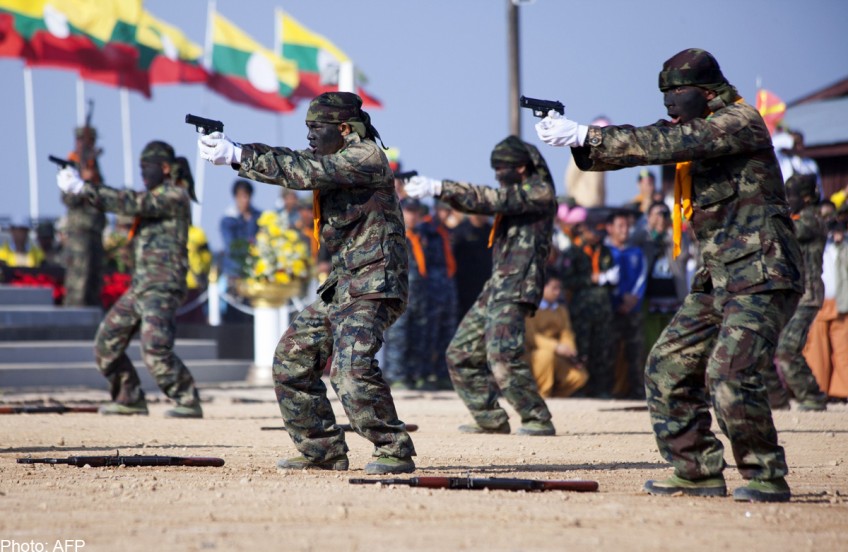Myanmar signs pledge for peace

MYANMAR'S government and several armed ethnic groups have issued a pledge in Naypyitaw to work towards a national ceasefire accord and subsequent political talks.
The pledge camouflages a failure to reach a much-coveted Nationwide Ceasefire Accord that President Thein Sein wanted signed yesterday.
Significantly, it means the President "officially signed a document committing himself and his government to peace and federalism", said a source familiar with the negotiations.
Federalism, which implies a high degree of autonomy for the ethnic groups, is one of the main demands of the 16 armed groups the government has been negotiating with.
But only four of them - three Karen and one Shan - signed the document.
It is a "very weak outcome" from a "pretty uninspiring text", said a Myanmar-based analyst who asked not to be named.
This raises the issue of whether the critical peace process, which has stumbled mostly on the issue of trust, can sustain any momentum in an election year loaded with the risk of turmoil.
The government hopes it will.
A source told The Straits Times: "No one was against it.
Those who could not sign, did not sign because they did not have the mandate.
Now they can go back and talk to their colleagues to see if they will sign."
The document commits those who signed it, including 54 political parties, to "building a Union based on democratic and federal principles".
It promises to "conclude the Nationwide Ceasefire Agreement without delay while recognising that a nationwide ceasefire is vital for the political dialogue process".
They also pledged to establish "a new political culture of ending long-existing armed conflicts and solving grievances through dialogue instead of resorting to force of arms" and to "promptly hold an all-inclusive political dialogue process".
Another round of negotiations is to take place in a week, according to reports.
But leading up to a watershed election near the end of this year, Mr Thein Sein has even more on his plate, including a referendum in May on whether to open up the Constitution for amendments.
Yangon-based analyst Richard Horsey, a former top UN official in Myanmar, wrote in an e-mail: "A presidential commitment to federal union is highly significant, and could be important in the medium term - but will probably not solve the trust deficit in the short term.
"The bigger question is if and when a nationwide ceasefire will be signed. This looks increasingly unlikely.
That does not mean the end of the peace process but, with elections looming, the space for making any further progress is closing fast."
nirmal@sph.com.sg

This article was first published on Feb 13, 2015.
Get a copy of The Straits Times or go to straitstimes.com for more stories.